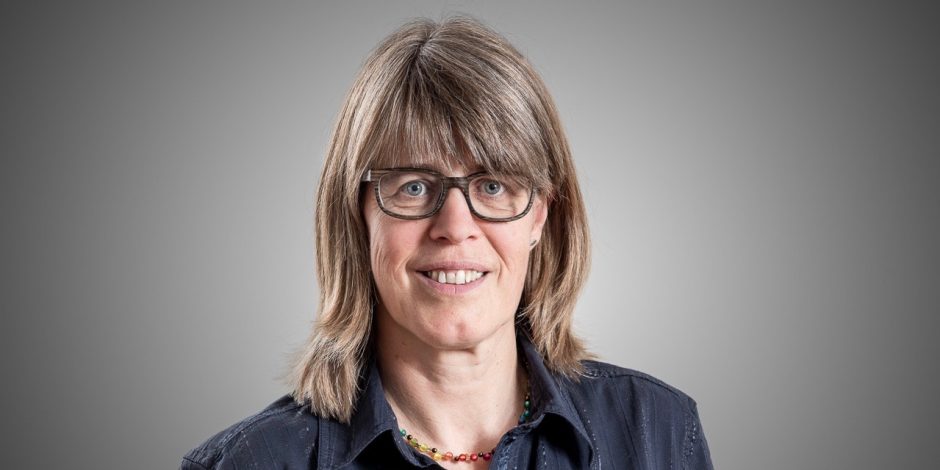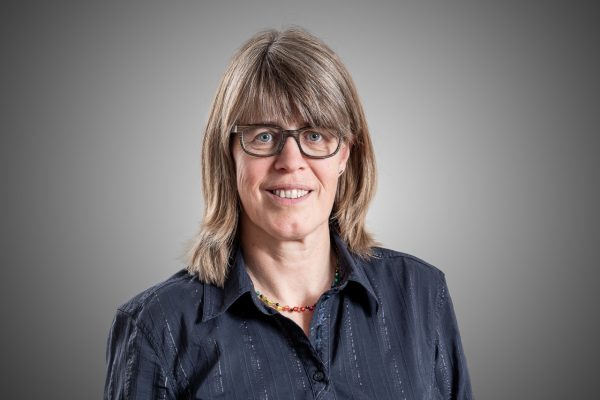“My work is completely different now”

For 15 years Annette Jäckel has been working for the comet mission Rosetta. Now, as a grants advisor at the University of Bern, she supports researchers in physics, astronomy and geology in raising competitive third-party funds. “I enjoy providing this service, I’ve always been customer-oriented,” she says.

Dr. Annette Jäckel, grants advisor at the University of Bern. (Photo University of Bern)
Annette Jäckel knows the career concerns of young researchers very well from her own experience. “In the beginning it’s fun to frequently change your place of work and meet new people, but at some point, you also want to keep your circle of friends and have a permanent job,” she says: “The older you get, the more stressful the uncertainty becomes.”
Annette Jäckel studied geology in Marburg, Germany, received her PhD in planetology in Münster, Germany, and then worked as an ESA Internal Research Fellow at ESTEC in the Netherlands for the Rosetta comet mission. There, she met Kathrin Altwegg and Hans Balsiger, both professors of the University of Bern who were developing the ROSINA instrument as part of Rosetta. In October 2000, she joined their team in Bern as a postdoc. In the laboratory she carried out countless tests on various models of the mass spectrometer RTOF and later wrote the measurement sequences for the instrument in space.
With the end of Rosetta originally planned for 2015, Annette Jäckel’s contract also expired; she had to look for a new job. “It was a difficult time,” recalls the scientist, who had been involved with the comet mission for 15 years and would have liked to further evaluate the data. “I was hiding, which was completely wrong in my situation. It’s important to stay active.” From June 2016, she was able to fill in for a colleague on maternity leave as instrument manager of CHEOPS, but this position was temporary. In her search for a job, she now benefited from the fact that she had already completed further training and built up a network at the university. “I also kept in touch with people from other institutes,” she says. When a position became vacant in the grants office for a part of the natural sciences (physics, astronomy and geology), she found out about it and got the job.
Further training pays off
While working for ROSINA, she had already attended CAS (Certificate of Advanced Studies) courses in e-learning and knowledge management. However, it was the course in research management that particularly impressed her. She completed the course, which lasted 13 months, with a certificate. Some of the courses took place on Saturdays, for modules lasting some days during the week her boss Kathrin Altwegg released her from duty. “But I financed everything myself,” Annette Jäckel describes her effort, which paid off as it gave her an advantage over other job applicants. She therefore advises the researchers: “If you want to or have to leave university and are no longer young enough for a position in industry, then you should complete a CAS during your second postdoc at the latest.”
Since 2018 Annette Jäckel has been supporting researchers as a grants advisor in raising competitive third-party funds. “My work is completely different now,” she says: “Actually, I’m quite externally determined now, since we’re service providers. But what sounds negative is fun, I’ve always been customer-oriented.” The European Commission does not sign contracts with individual researchers, but with the University of Bern. The grants office organizes the administrative work, but also gives helpful tips on how to write an application. “A proposal is not a scientific publication, but should appeal to the evaluator and be well comprehensible,” says the expert.
If, in a second step, an applicant is invited to Brussels for an interview, the grants office organises interview training, conducted by an external company, which is highly professional. “This pays off,” explains Annette Jäckel: “Because if 1.5 million euros are awarded for 5 years afterwards, you can spend a good 500 to 1000 francs per candidate on training.” During the course of a project, the grants office also helps with the reports and initiates the final audit.
Although Annette Jäckel is still interested in research, she decidedly says: “I’m not going back.” The new job is optimal for her, she is still at the University of Bern and with the same people she appreciates very much. “We also have regular opening hours and I don’t have to write emails at the weekend,” she says laughing. And she is happy about a lot of feedback from the researchers, which is positive in most cases. While working for ROSINA, she received no feedback from the instrument. “Now I go home in the evening and know that I was able to answer important questions from the researchers for their application for third-party funding,” says Annette Jäckel.
InsiderS no. 17: Stéphane Berthet, Vice-Rector of the University of Geneva
InsiderS no. 16: Andreas Hirstein, science editor, NZZ am Sonntag
InsiderS no. 15: Bettina Zahnd, head of accident research, AXA

